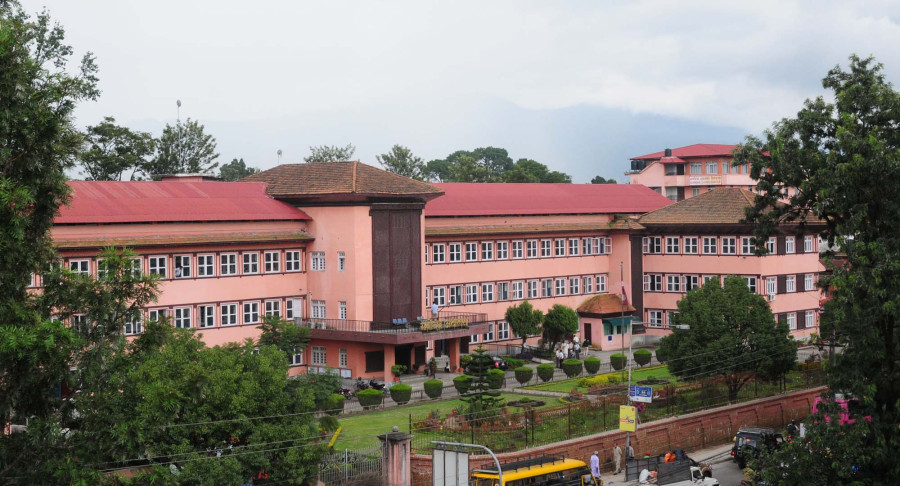National
Constitutional bench of Supreme Court repeals provincial laws for the first time
The legislation, related to salaries that local representatives were receiving, contradicted the constitution, according to the bench.
Tika R Pradhan
In a major decision, the constitutional bench of the Supreme Court on Friday repealed the laws provincial governments had enacted to allow elected representatives at the local level to receive salaries.
This is the first time since its formation on September 1, 2017 that the constitutional bench has repealed laws enacted and implemented by the provincial governments.
Six out of seven provincial governments, except for Province 1, had enacted such laws a year after their formation.
With the bench’s order, around 30,000 local-level officials won’t be able to receive monthly salaries and allowances. The timeline for the implementation for the order, however, is unclear.
Advocate Lokendra Oli had filed a writ petition on August 18, demanding that the legal provisions of the six provinces allowing local representatives to draw monthly salaries be quashed as it contradicted the constitutional provisions and burdened the state coffers. The specific wording of the constitution only allows for “facilities” for local representatives, not “salaries” as enumerated in the provincial laws.
During the constitution-writing process, the drafters had debated over the system of governance in the federal set-up—whether to adopt three-tiers or two-tiers of government. Later, politicians opted for a three-tier administration—federal, provincial and local.
“But the drafters came to the conclusion that it would be difficult to manage salaries for more than 30,000 elected representatives at the local level. That’s why they inserted a provision of only providing them with facilities,” said senior advocate Chandra Kanta Gyawali, who argued on behalf of the petition.
The bench, comprising Chief Justice Cholendra Shumsher Rana and Justices Deepak Kumar Karki, Kedar Prasad Chalise, Mira Khadka and Hari Krishna Karki, ordered that the provincial laws be annulled, saying they contradicted provisions laid out in Articles 220 (8) and 227 of the constitution.
Office bearers and members of the local level and the district coordination committees were benefitting with the monthly salaries besides allowances on different topics, as per the provinces’ Acts Related to Benefits for the Office Bearers and Members of the Local Level.
The local level in the country is made up of 293 municipalities, 460 rural municipalities and 6,743 wards.
Ashok Byanju, chairman of the Municipal Association of Nepal, the umbrella organisation of all the municipalities of the country, said that local representatives had not demanded any salary and “were ready to serve the people without a monthly salary”.
However, chairpersons of the local federal units have expressed their discontent at the court’s decision, saying that the move could affect their performance.
“It’s fair to say that such benefits to local representatives were a burden on state coffers. But those benefits had also motivated them to work proactively,” said Raju Gurung, chairman of Siranchowk Rural Municipality of Gorkha. “It would be idealistic to ask a person to work without benefits.”
Constitutional experts, however, blamed the federal government for not supporting the provinces to draft necessary laws in a proper manner.
Khim Lal Devkota, who served as the head of the planning commission of Province 3, said that Friday’s court decision was the result of the federal government’s failure to extend support to provinces in drafting crucial legal frameworks.
“It was the federal government that sent its civil servants to the provincial ministries of internal affairs and law and it was they who made these flawed laws,” Devkota said.
According to Devkota, a number of local governments had already decided on their representatives’ perks and benefits on their own, instead of waiting for legal provisions from the provincial assembly.
“Things will get out of hand if the Office of the Financial Comptroller General starts carefully looking into their expenses,” said Devkota.
This incident shows a lack of uniformity in the laws of the various provinces and a failure of the federal government to facilitate the formation of laws at the provincial level, according to Devkota.
“Many provincial laws have flaws,” he said. “These flaws will surface gradually.”




 18.12°C Kathmandu
18.12°C Kathmandu














